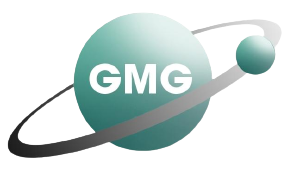Understanding the Executive Interview Landscape
The executive job interview process is different from other job interviews. It’s crucial to understand the landscape before you go in. Here are some key points to keep in mind:
- Executive interviews often focus on strategic thinking and leadership abilities.
- Research the company thoroughly and be prepared to discuss how your experience aligns with their goals.
- Executive interviews may involve multiple rounds and interviews with several senior leaders.
- Expect questions regarding your vision for the company’s future and how you plan to drive results.
- Be ready to showcase your decision-making skills and how you handle challenging situations.

Researching the Company and Its Culture
Before going for an executive level job interview, it’s crucial to research the company and its culture. This includes understanding the company’s background, its values, and its goals. It’s important to gather information about the company’s recent achievements and any challenges they may be facing. You should also familiarize yourself with the company culture, including its work environment, employee interactions, and any recent initiatives or events. Understanding the company and its culture will help you tailor your responses during the interview and demonstrate your understanding and alignment with the organization’s values and goals.
Analyzing the Job Description and Requirements
When preparing for an executive level job interview, it’s crucial to carefully analyze the job description and requirements. This involves understanding the key responsibilities and qualifications needed for the role. Consider the following points:
- Job Responsibilities: Pay close attention to the specific duties and tasks outlined in the job description. Understand what is expected from the executive position and how your skills and experience align with these responsibilities.
- Qualifications and Skills: Identify the essential qualifications, such as educational background, years of experience, and specific skill sets required for the role. This will help you tailor your responses to showcase your qualifications during the interview.
- Company Culture and Values: Take note of any mentions of company culture, values, or mission in the job description. Understanding the company’s culture can help you better align your responses during the interview and demonstrate your fit within the organization.
By thoroughly analyzing the job description and requirements, you can effectively prepare for the executive level job interview and confidently address how you are the ideal candidate for the position.
Crafting Your Leadership Narrative
When preparing for an executive level job interview, it’s essential to craft your leadership narrative effectively. This involves highlighting your experiences and accomplishments as a leader in a way that demonstrates your ability to drive strategy, inspire teams, and achieve results. By articulating your leadership story with clarity and confidence, you can showcase how your past experiences have shaped you as a leader, and how you can contribute to the organization’s success in an executive role.
Mastering Common Executive Interview Questions
Executive level job interviews often include common questions that assess your leadership skills and strategic thinking. To prepare, focus on practicing responses that showcase your ability to make high-level decisions, handle challenging situations, and lead teams effectively. Common questions may revolve around your experience in leading successful projects, handling conflicts, setting strategic goals, managing budgets, and navigating industry challenges. Keep in mind that interviewers are looking for evidence of your ability to thrive in executive positions, so be ready to provide specific examples and concrete achievements.
Strategies for Communicating Your Vision and Values
When communicating your vision and values during an executive level job interview, there are several strategies you can employ to effectively convey your message. Here are some key strategies to consider:
- Craft a compelling narrative: Use storytelling techniques to articulate your vision and values in a way that resonates with the company’s mission and goals.
- Showcase your leadership style: Demonstrate how your leadership style aligns with your vision and values, emphasizing your ability to inspire and motivate teams.
- Provide concrete examples: Back up your vision and values with specific examples from your professional experience that illustrate how you have successfully implemented them in the past.
- Express adaptability and openness: Emphasize your willingness to adapt your vision and values to align with the company’s objectives, showcasing flexibility and open-mindedness.
By employing these strategies, you can effectively communicate your vision and values during an executive level job interview, leaving a lasting impression on your potential employers.
Preparing for Behavioral Interview Techniques
Sure, here’s the markdown for the blog section:
Behavioral interview techniques are focused on your past experiences and behaviors. It’s important to prepare for these types of questions by thinking of specific examples from your previous work, where you have demonstrated certain skills or qualities. This can include situations where you have shown leadership, problem-solving, teamwork, or conflict resolution. Practicing your responses to behavioral questions can help you feel more confident and prepared during the interview. It’s also useful to keep the STAR method in mind – this stands for Situation, Task, Action, and Result, and can help you structure your answers in a clear and concise way.
Demonstrating Your Industry Expertise and Insight
When preparing for an executive level job interview, it’s crucial to demonstrate your industry expertise and insight. Here are a few essential tips to help you showcase your knowledge and experience:
- Research the latest trends and developments in your industry to stay updated and informed.
- Prepare specific examples of how your expertise has positively impacted previous companies or projects.
- Use active and confident language to communicate your insights and solutions during the interview.
- Be ready to discuss how your industry knowledge can drive success and innovation within the organization you are interviewing for.
The Importance of First Impressions: Dress Code and Body Language
First impressions matter in executive level job interviews. Your appearance and body language can greatly influence the interviewer’s perception of you. Here are some essential points to keep in mind:
- Dress professionally and conservatively to convey a sense of confidence and competence.
- Ensure your body language reflects positivity and assertiveness, such as maintaining eye contact and using appropriate gestures.
- Remember that non-verbal cues play a significant role in forming a first impression, so be mindful of your posture and facial expressions.
Post-Interview Etiquette: Follow-up and Thank You Notes
After your executive level job interview, it’s essential to follow up with a thank you note to express gratitude for the opportunity and reiterate your interest in the position. According to career experts, sending a personalized thank you note within 24 hours is crucial. Your message should be concise, professional, and show appreciation for the interviewer’s time. Remember to personalize each note based on the specific conversation you had during the interview.
